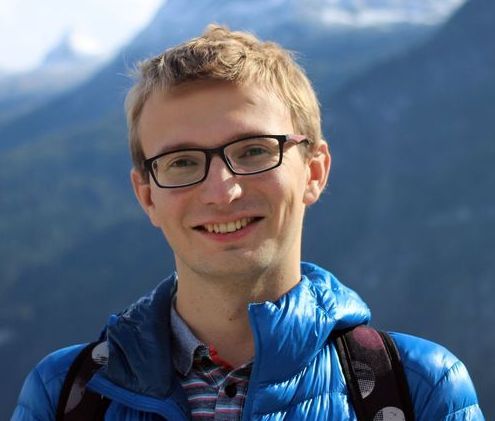PhD position within OCCAM project
We are looking for excellent candidates for a fully-funded 3-year PhD position financed by the ANR JCJC project OCCAM (Theory and Practice of Differential Elimination).
General information
- The PhD student will be a member of the MAX team of the Computer Science Laboratory at Ecole Polytechnique.
- Thesis advisors: Gleb Pogudin and Joris van der Hoeven
- Starting date no later than October 1, 2023
Scientific description
Models defined by systems of differential equations are widely used in engineering and sciences. The variables used to define the models can typically be divided into three groups:
- state variables describe the overall situation (e.g., coordinates and velocities of particles or concentrations of species);
- input variables encode the external factors used to control the model (e.g., external forces or drug injection);
- output variables identify the quantities for which data is collected via measurements (e.g., by placing sensors).
While the full information about the current state of the system is contained in the state variables, data is usually available only for input and output variables. The relations satisfied by these variables only are called input-output relations [4] and can be thought as the relations defining the data manifold. Because of this, input-output relations play an important role in control theory, and computing/describing them is a fundamental problem.
From the computational algebra perspective, computing input-output relations is a special case of the more general problem of differential elimination. This problem has been studied actively both from theoretical and practical perspectives since the 1930s. In particular, the BLAD [3] library has been developed and its functionality is now included in the standard Maple library. These software tools are applicable to a wide range of systems of differential equations including arbitrary polynomial PDEs. Such generality comes with a price: the computation does not scale well when the complexity of the input increases.
Motivated by the parameter identifiability [6] problem from control theory, an algorithm for describing input-output equations for a popular class of models (models in the state-space form) was proposed in [1]. In this work, restricting the class of inputs and rethinking the representation of the output allowed to outperform the state of the art general elimination tools significantly.
The general goal of the present project is to take these development to the next level by studying and exploiting the structure of input-output relations. This will include:
- Predicting the features of the input-output relations based on the input model. For example, by computing an overapproximation of the supports of these relations or by characterizing the class of straight-line programs which could be used to write the input-output relations concisely.
- Exploiting the obtained predictions to make the computation with input-output equations more efficient. For example, by using sparse interpolation techniques.
The specific directions to achieve these goals outline above include:
- Predicting the support of the input-output relations can be done by interpreting them as a result of the implicitization procedure, and then using methods from polyhedral geometry and tropical algebra building upon the results of [2].
- Writing the input-output relations concisely using straight-line programs involving extra basic operations such as Wronskians, borrowing insights from the theory of differential resultants [5], [7].
In both cases, the development of theoretical methodology will be followed by turning the ideas into algorithms and practical implementations. The performance and functionality of the implementations will be critically analyzed by using them in applications to the problems in control theory (such as parameter identifiability, model selection, fault diagnosis, etc.).
References
[1] R. Dong, C. Goodbrake, H. Harrington, and G. Pogudin, Differential elimination for dynamical models via projections with applications to structural identifiability, accepted to SIAM Journal on Applied Algebra and Geometry, 2022.
[2] B. Sturmfels, J. Tevelev, and J. Yu, The Newton polytope of the implicit equation, Moscow Math Journal, 7(2):327–346, 2007.
[3] F. Boulier, The BLAD libraries, 2004.
[4] E. D. Sontag, Mathematical control theory, Springer New York, 1988.
[5] W. Li, C-M. Yuan, and X.-S. Gao, Sparse differential resultant for Laurent differential polynomials, Foundations of Computational Mathematics, 15(2):451–517, 2015.
[2] H. Miao, X. Xia, A. S. Perelson, and H. Wu, On identifiability of nonlinear ODE models and applications in viral dynamics, SIAM Review, 2011.
[7] S.L. Rueda, Linear sparse differential resultant formulas, Linear Algebra and its Applications, 438(11):4296–4321, 2013.
Requirements
Some background in algebra and programming experience are highly desirable. Familiarity with dynamical systems, control theory, numerical analysis, or math biology would be an asset.
The working language will be English.
How to apply
Apply by sending the following to Gleb Pogudin (gleb.pogudin@polytechnique.edu) with the subject “PhD OCCAM application”:
- CV
- Transcript
- A cover letter explaining your personal motivation in pursuing a PhD
- Any other information you consider relevant
- A list of two referees we can contact (please also describe their relationship to you)
You should also apply on ADUM.
Preference will be given to the applications submitted by January 31, 2023
